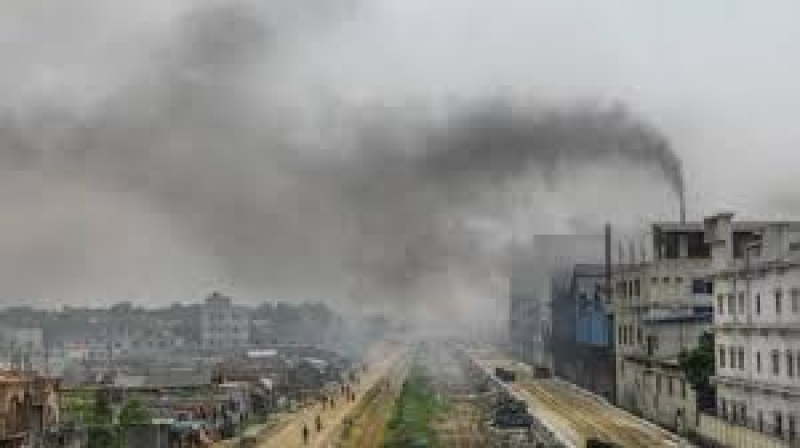- BSEC Chairman’s resignation urged to stabilise stock market |
- Rain, thundershowers likely over 8 divisions: BMD |
- First freight train leaves Mongla carrying molasses |
- 2 dead, six hurt in Sherpur micro-autorickshaw-motorbike crash |
- One killed over loud music row at wedding party in Natore |
Dhaka’s air ‘unhealthy’ Sunday morning

Dhaka, the overcrowded capital city of Bangladesh, has ranked the second on the list of cities with the worst air quality with an AQI score of 190 at 9am this morning (February 23, 2025).
Today’s air was classified as 'unhealthy’, referring to a health threat to residents, according to the AQI index.
Though a very unhealthy air quality prevailed in the city over the past few days, under the influence of light rains in the evening on Saturday the air might have improved slightly on the first working day of the week.
When the AQI value for particle pollution is between 50 and 100, air quality is considered ‘moderate’, usually sensitive individuals should consider limiting prolonged outdoor exertion, between 101 and 150, air quality is considered ‘unhealthy for sensitive groups’, between 150 and 200 is ‘unhealthy’, between 201 and 300 is said to be 'very unhealthy', while a reading of 301+ is considered 'hazardous', posing serious health risks to residents.
Senegal’s Dakar, Uganda’s Kampala and China’s Wuhan cities respectively occupied the second, third and fourth spots on the list, with AQI scores of 194, 182 and 181 respectively.
The AQI, an index for reporting daily air quality, informs people how clean or polluted the air of a certain city is and what associated health effects might be a concern for them.
The AQI in Bangladesh is based on five pollutants: particulate matter (PM10 and PM2.5), NO2, CO, SO2, and ozone.
Dhaka has long been grappling with air pollution issues. Its air quality usually turns unhealthy in winter and improves during the monsoon.
As per World Health Organization (WHO), air pollution kills an estimated seven million people worldwide every year, mainly due to increased mortality from stroke, heart disease, chronic obstructive pulmonary disease, lung cancer, and acute respiratory infections, reports UNB.

